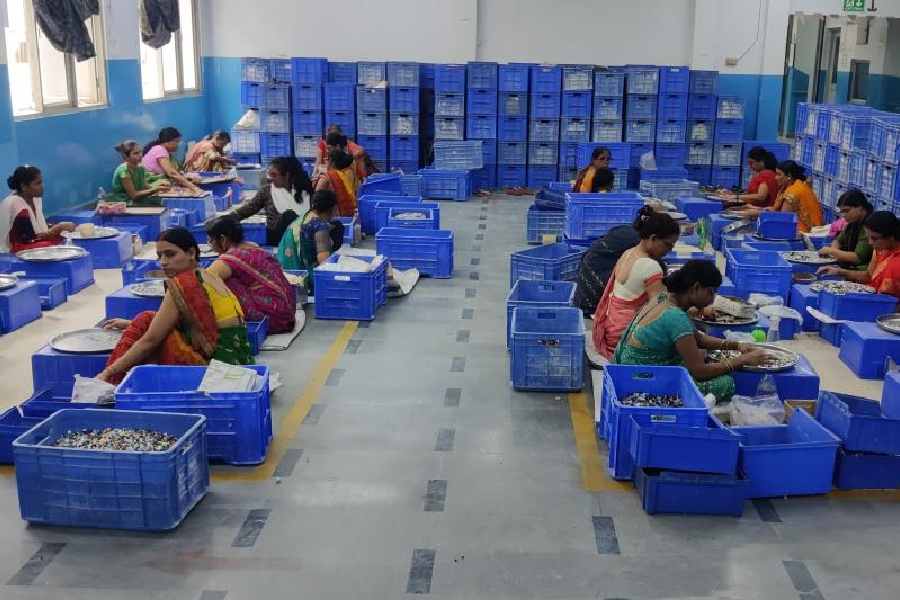The bead manufacturers of Varanasi have been a worried lot since US President Donald Trump decided to impose a 50 per cent tariff on Indian imports.
The ancient city, which mainly derives its fame from its temples and silk sarees, is also one of the major centres of bead manufacturing. However, most of the beads are produced for exports, and the US is one of the principal buyers.
“Trump’s decision is hurting the industry for sure,” said Rajesh Kumar Singh, the president (Varanasi) of an association of small-scale producers of artefacts, including beads and wooden toys.
“It will particularly hurt the small producers and exporters and eventually over 10 lakh artisans because if there is no supply, there will be no production,” he said, adding that steep US tariffs were also not in the interest of the Americans as they would have to buy these items at a higher cost.
“Such items are more in demand in America and rich European countries than in India because their purchasing power is good,” said Ranjay Singh, a student of economics at Banaras Hindu University, who is studying the impact that the debilitating US tariffs would have on India.
However, Ashok Gupta, the owner of 85-year-old Banaras Beads Limited, has found a way to continue producing and exporting beads to the US.
“We supply 55 per cent of our products to America. They are mostly innovative designs. We decided to find a way out instead of lamenting Trump’s decision. We discussed with the importing agencies that buy beads from us and decided to split the 25 per cent tariff, which was imposed in the second round, among ourselves. This agreement will stay in force till the tariff impasse continues,” Gupta told The Telegraph.
Gupta said he would neither lay off his workers nor scale down production.
“I am not saying that Washington’s decision will not affect me or others like me. Our growth will come to a halt if an agreement on tariff reduction is not signed soon by India and the US,” he added.
Gupta, who produces both wooden and glass beads, employs 700 workers at his workshop in Varanasi, of which 90 per cent are women.
“There are over 10,000 people associated with my work at different levels (of procurement, production and supply). My target is to earn less but keep intact the primary workforce as well as the stakeholders involved with the production or supply chain,” he said.
Some bead and toy makers said the recent decision of the Uttar Pradesh government to provide ₹3.25 lakh against ₹2 lakh earlier to the state’s small exporters to rent space in exhibitions to display their products in a foreign country would come as a respite. The state government has also hiked the reimbursement for airfares to ₹1.25 lakh from ₹1 lakh.
Earlier, exporters used to get ₹50,000 from the government for renting space in domestic exhibitions. The amount has now been increased to ₹75,000.
The government has also doubled the cash support for exporters, raising the incentive to ₹20,000 for a 20-foot container and ₹40,000 for a 40-foot container from previous rates of ₹10,000 and ₹20,000, respectively.
The state government has earmarked ₹10 crore as a dedicated fund for research and product design of the export items. “The government has taken many decisions to help us,” Gupta said.
However, a bead maker who didn’t want to be named said the government’s decisions would only help them in the long run.
“Many of us believe that we are running out of time and shouldn’t waste even a single day. Lesser demand means a reduction in the workforce. Many bead producers are engaged in saree- or toy-making. They may scale down production and start exporting to Europe and Africa in limited quantities. But this will erode our revenues and affect all those associated with us,” he said.










